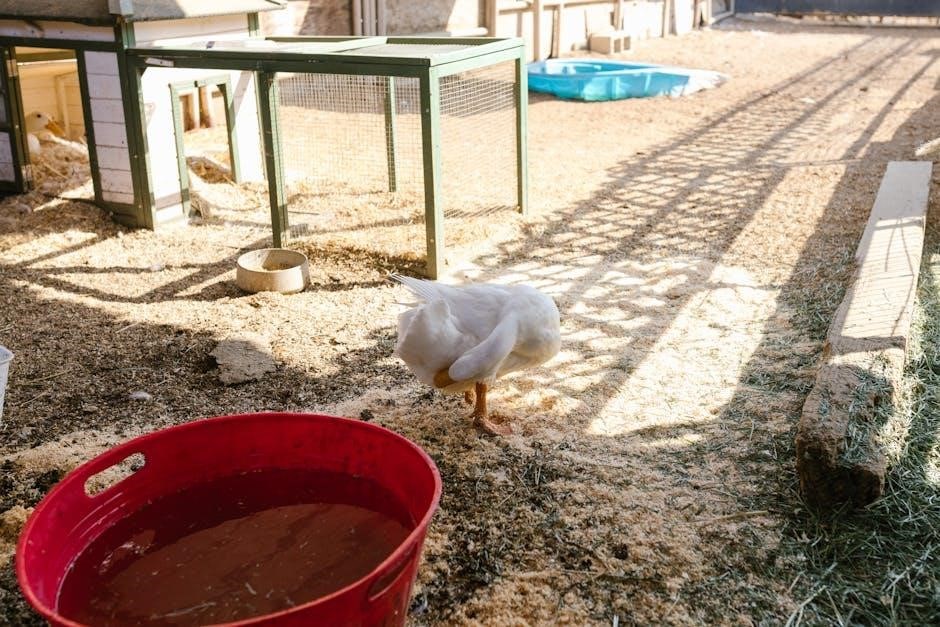Here’s the overview, focusing on the core elements of the novel:
The City Baker’s Guide to Country Living: An Overview
Louise Miller’s debut novel is a heartwarming tale of Olivia Rawlings, a Boston pastry chef, seeking refuge in rural Vermont. She finds herself working at the Sugar Maple Inn, discovering community, love, and the true meaning of home amidst quirky characters and delectable baking.
Olivia’s Journey: From Boston Baker to Vermont Inn Employee
Olivia “Livvy” Rawlings, a talented pastry chef in Boston, experiences a turning point when an accident involving a flambéed dessert leads to unforeseen consequences, prompting a much-needed escape. Fleeing the embers of her past at an exclusive Boston dinner club, Livvy seeks solace in Guthrie, Vermont. This escape is motivated by guilt and rumor, setting the stage for a transformative experience far removed from her city life.
At first, it is a short weekend retreat with her best friend Hannah. However, her getaway evolves into a lasting change. Fate intervenes when Margaret Hurley, the Sugar Maple Inn’s owner, offers Livvy a job. Broke and aware her days at the club were numbered, Livvy accepts Margaret’s offer.
This decision marks a significant shift for Olivia. Moving into a sugarhouse on the inn’s property alongside her enthusiastic dog, Salty, she begins crafting desserts. This move is more than a job change. It is a journey of self-discovery. Livvy’s relocation allows her to not only escape the consequences of her past actions but also discover a new path. This path is full of potential for healing, growth, and a sense of belonging she never anticipated.
The Sugar Maple Inn: Setting and Significance
The Sugar Maple Inn serves as the central location for much of the novel’s heartwarming narrative. The Inn is a charming, if somewhat run-down, establishment owned by the cantankerous but secretly kind-hearted Margaret Hurley. It embodies the essence of small-town Vermont life, far from the hustle and bustle of Boston, which is where Olivia comes from.
The Inn’s significance extends beyond just a place of lodging. It represents a sanctuary for Livvy, offering her a chance to rebuild her life and career after her past mistakes. The setting is not just a backdrop but an active participant in Olivia’s transformation. The Inn’s history, the surrounding natural beauty, and the sense of community it fosters all contribute to Livvy’s healing process.
Furthermore, the Inn becomes a focal point for the community itself. The annual apple pie contest becomes a point of pride for Margaret and the town. Livvy soon understands that she has been hired to help Margaret reclaim the inn’s blue ribbon status at the annual county fair apple pie contest. The inn represents tradition, connection, and the simple pleasures of country living, all of which play a crucial role in Olivia’s journey of self-discovery.
The Town of Guthrie, Vermont: A Charming Escape
Guthrie, Vermont, is depicted as an idyllic small town, serving as a stark contrast to Olivia’s previous life in bustling Boston. The town’s charm lies in its close-knit community, picturesque landscapes, and the unhurried pace of life. It embodies a simpler existence, focused on tradition, nature, and genuine human connection. Guthrie is more than just a geographical location; it’s a sanctuary.
The town’s significance is highlighted by its annual traditions, such as the country fair and, most notably, the apple pie contest. These events showcase the town’s spirit and provide opportunities for residents to come together and celebrate their shared values. Guthrie is described as the home of Bag Balm, the country’s longest-running contra dance, and her best friend Hannah.
For Olivia, Guthrie represents an escape from her past mistakes and a chance to start anew. The town’s welcoming atmosphere and the genuine kindness of its residents gradually help her to heal and rediscover herself. It is in Guthrie that she finds a sense of belonging and begins to understand the true meaning of home, something she had long been searching for. The visions of bucolic Vermont landscapes, cinnamon-scented kitchens and small-town friendliness make this reverie of country life an appealing one.
The Apple Pie Contest: A Central Plot Point
The annual apple pie contest in Guthrie, Vermont, serves as a pivotal event in “The City Baker’s Guide to Country Living,” driving much of the narrative and character development. It is more than just a baking competition; it symbolizes tradition, community pride, and the pursuit of excellence. Margaret Hurley, the owner of the Sugar Maple Inn, sees the contest as crucial to maintaining the inn’s reputation and legacy.
When Olivia arrives, she is tasked with helping Margaret reclaim the inn’s blue ribbon status. This challenge becomes a catalyst for Olivia’s integration into the town. As Olivia throws herself into perfecting the apple pie recipe, she connects with the local ingredients, the community, and her own passion for baking; The process becomes a journey of self-discovery for Olivia, forcing her to confront her past and embrace her new surroundings.
The contest also highlights the importance of food in bringing people together. Baking the perfect apple pie requires collaboration, creativity, and a touch of love. Through the contest, Olivia learns to appreciate the value of community and the joy of sharing her talents. The apple pie contest is a warm, fresh look at making new choices in life.

The Role of Food and Baking: Comfort and Connection
In “The City Baker’s Guide to Country Living,” food, particularly baking, plays a central role in providing comfort and fostering connections between characters. Olivia’s talent as a pastry chef becomes her bridge to the community of Guthrie, Vermont. Baking is presented not merely as a profession, but as a form of expression and a way to nurture relationships.
Olivia’s creations, from her mouthwatering desserts to her innovative take on the apple pie, serve as a way to bring joy and comfort to those around her. The fragrant kitchen of the Sugar Maple Inn becomes a gathering place, where the aroma of freshly baked goods evokes warmth and nostalgia. As Olivia shares her culinary creations, she connects with the residents of Guthrie, learning their stories and becoming an integral part of their lives.
Food acts as a universal language, transcending differences and fostering a sense of belonging. It is through her baking that Olivia discovers her own sense of purpose and finds solace in her new surroundings. The novel emphasizes the power of food to heal, connect, and create a sense of community. The comfort found in familiar flavors and shared meals becomes a source of strength and resilience for Olivia and those around her.

Livvy’s Relationships: Martin and Margaret Hurley
In “The City Baker’s Guide to Country Living,” Livvy’s relationships with Martin McCracken and Margaret Hurley are pivotal to her growth and sense of belonging. Martin, a Guthrie native returning to care for his father, represents a connection to the town’s roots and a potential for love. Their relationship blossoms amidst the backdrop of Vermont’s charm, offering Livvy a chance at genuine connection and a future she never imagined.
Margaret Hurley, the Sugar Maple Inn’s owner, is a complex figure—cantankerous yet kind. She offers Livvy a job and a purpose, becoming a surrogate mother figure. Their relationship evolves from employer-employee to a deeper bond of mutual respect and affection. Margaret challenges Livvy, pushing her to embrace her talents and confront her past.
Through these relationships, Livvy learns the importance of trust, vulnerability, and the power of human connection. Martin shows her the possibility of love and acceptance, while Margaret provides a sense of stability and guidance. These bonds help Livvy overcome her past traumas and build a new life filled with love, purpose, and a sense of belonging in the heart of Guthrie, Vermont.
Themes of Belonging and Finding Home
“The City Baker’s Guide to Country Living” explores the profound themes of belonging and finding home, central to Olivia Rawlings’ journey. Initially, Livvy feels like an outsider, disconnected from her past and unsure of her place in the world. Her arrival in Guthrie, Vermont, marks the beginning of her quest to find a sense of belonging.
The novel beautifully illustrates how “home” is not merely a physical location but a feeling of connection, acceptance, and love. Through her relationships with Martin, Margaret, and the quirky residents of Guthrie, Livvy gradually discovers the warmth and support she has always longed for. Baking becomes a conduit for connection, as she shares her creations and becomes integrated into the community’s fabric.
Livvy’s journey is about overcoming her past and embracing the possibility of a future where she truly belongs. Guthrie offers her a chance to redefine herself and build a home filled with love, friendship, and purpose. The novel celebrates the idea that home can be found in unexpected places, and that belonging is possible when we open our hearts to new connections and experiences.

Louise Miller: Author’s Background and Inspiration
Louise Miller, the author of “The City Baker’s Guide to Country Living,” is a pastry chef and writer residing in Boston, MA. Her personal background as a pastry chef deeply informs the novel, lending authenticity to the descriptions of baking and the culinary world. Miller’s experiences working in kitchens and her passion for food are vividly reflected in the book’s rich sensory details.
Miller’s artistic inclinations extend beyond the culinary arts. She is an art school dropout, an amateur flower gardener, an old-time banjo player, an obsessive moviegoer, and a champion of old dogs. These diverse interests contribute to the novel’s vibrant characters and settings, creating a world that is both charming and relatable.
“The City Baker’s Guide to Country Living” was her debut novel. The inspiration likely stems from her love for small-town life, her appreciation for the comforting power of food, and her desire to explore themes of belonging and self-discovery. The novel reflects her artistic sensibilities and her deep understanding of human connection.

Critical Reception and Reader Response
“The City Baker’s Guide to Country Living” garnered positive reviews from critics and resonated strongly with readers. The novel was praised for its heartwarming story, charming characters, and vivid descriptions of food and rural life. Critics often highlighted Miller’s ability to create a comforting and escapist reading experience.
The book was selected as an Indie Next pick by the American Booksellers Association and a Library Reads pick by librarians across the U.S., indicating its widespread appeal. It was also shortlisted by the American Library Association’s Reading List Council for best women’s fiction, further solidifying its critical acclaim.
Readers particularly enjoyed the novel’s exploration of themes such as finding home, building community, and embracing second chances. The characters, especially Olivia, were praised for their relatability and emotional depth. The book’s emphasis on the power of food to connect people and provide comfort also resonated with many readers. The positive reception highlights the novel’s ability to evoke warmth, joy, and a sense of belonging.
